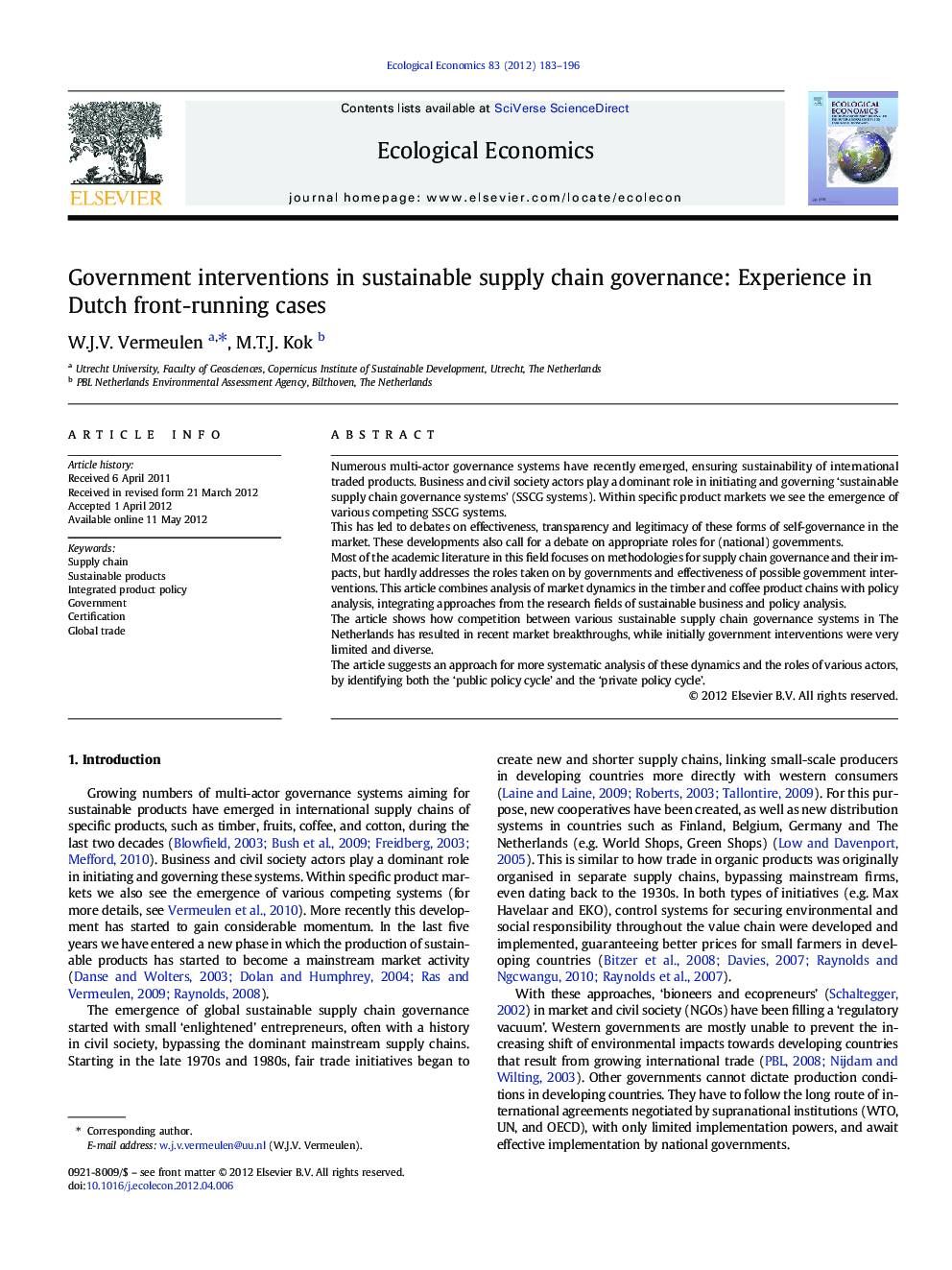| Article ID | Journal | Published Year | Pages | File Type |
|---|---|---|---|---|
| 5050034 | Ecological Economics | 2012 | 14 Pages |
Numerous multi-actor governance systems have recently emerged, ensuring sustainability of international traded products. Business and civil society actors play a dominant role in initiating and governing 'sustainable supply chain governance systems' (SSCG systems). Within specific product markets we see the emergence of various competing SSCG systems.This has led to debates on effectiveness, transparency and legitimacy of these forms of self-governance in the market. These developments also call for a debate on appropriate roles for (national) governments.Most of the academic literature in this field focuses on methodologies for supply chain governance and their impacts, but hardly addresses the roles taken on by governments and effectiveness of possible government interventions. This article combines analysis of market dynamics in the timber and coffee product chains with policy analysis, integrating approaches from the research fields of sustainable business and policy analysis.The article shows how competition between various sustainable supply chain governance systems in The Netherlands has resulted in recent market breakthroughs, while initially government interventions were very limited and diverse.The article suggests an approach for more systematic analysis of these dynamics and the roles of various actors, by identifying both the 'public policy cycle' and the 'private policy cycle'.
⺠In this study we are show the market breakthrough of first products with private certification for sustainability in the full supply chain. ⺠Government has been in the sideline in these developments. ⺠The future role of governments in this field of self-governance is discussed.
